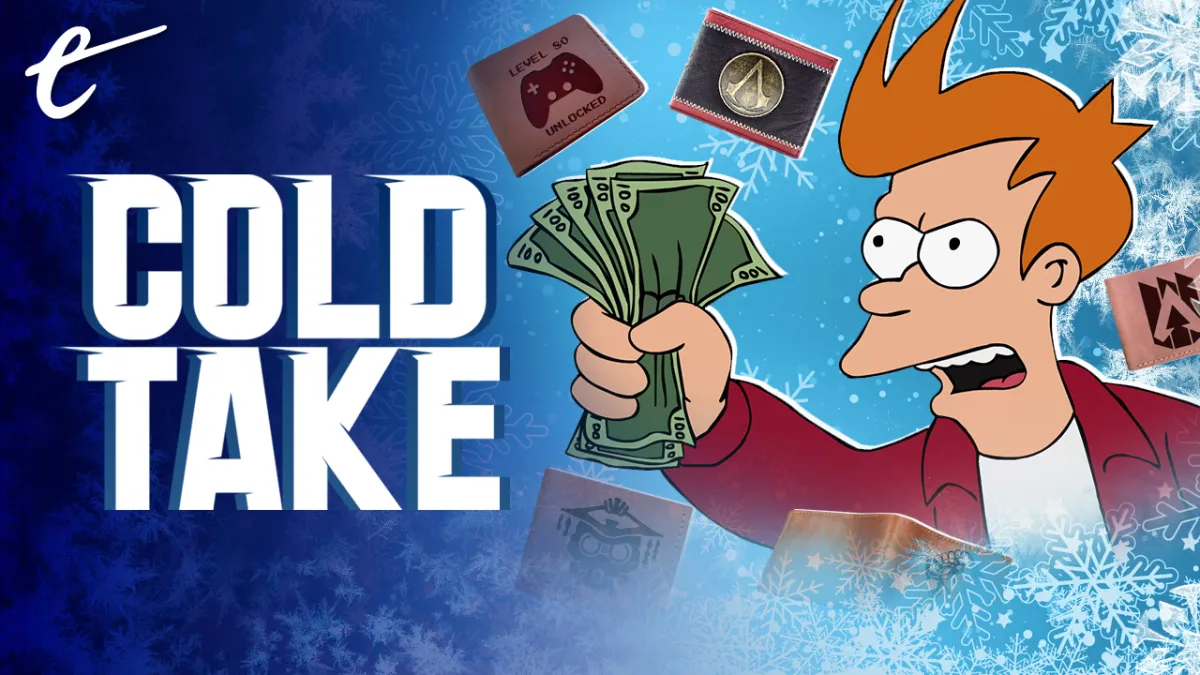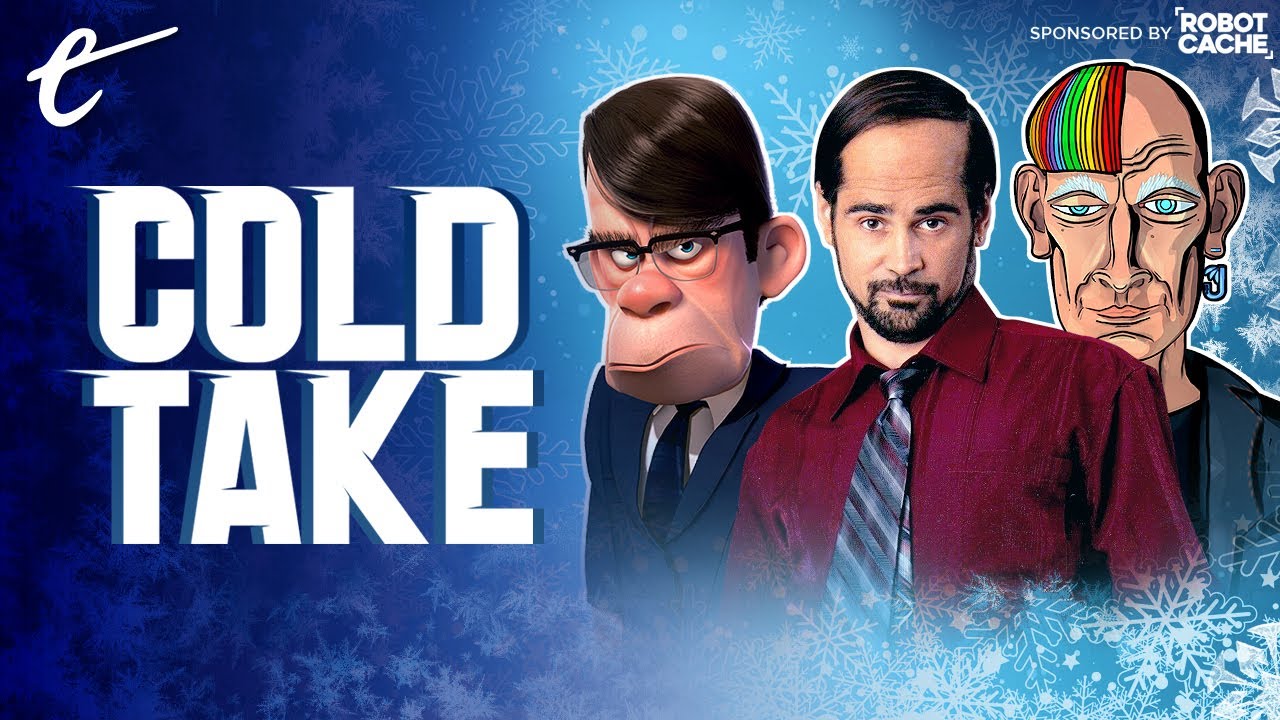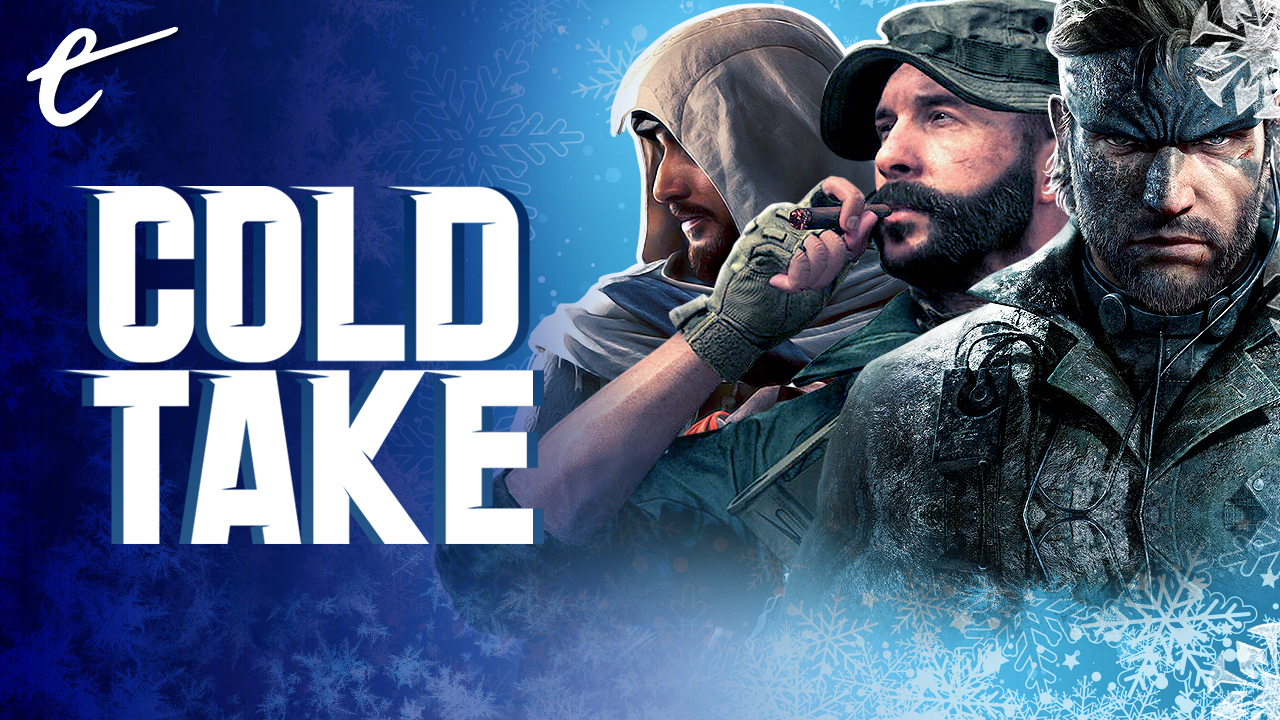This week on Cold Take, Frost takes a look at the sad state of consumer protections.
Check out more recent episodes of Cold Take, including AAA’s Struggle With Nostalgia, Why Are We Still Using Review Scores, The Hype Train is Running Out of Steam, and Armored Core 6 and the ‘Git Gut’ Mentality.
Consumer Rights Need to Catch Up – Transcript
Every regulation is written in blood – Happy Halloween – It’s a saying we have in the business of safety that basically means humans are bad at safety until after something bad happens. You see a sign that says “warning high voltage electricity” and you can probably guess that that sign didn’t exist until after someone felt what it was like to chew 5 gum. The video game industry shares that quality of doing something good after something bad happens, Steam’s refund policy came about after too many people were being scammed through the Early Access program. But the video game marketplace is constantly changing, so these regulations need to be updated frequently otherwise they get in the way of progress or leave buyers vulnerable to shady sellers. I don’t think anyone anticipated digital consumerism spreading as fast as it has, and that makes it harder for gamers to make informed decisions. Consumer protections are slacking, and I’d like it if we could get some signs put up before too many people get hurt.
The general gist of consumer protection is that sellers have a natural advantage over buyers because they know the real value of a product. I can try to sell you a banana for $100 and say it has magical properties that fight off macular degeneration, while really it’s a normal $10 banana that I used to try and kill a spider. A referee then flags me down and says that I am allowed to sell the banana for $100 or even $1000 but I am not allowed to claim it has any powers beyond an average banana-sized dose of potassium and I must disclose that I used it to bash a bug in the bathroom. You’re still allowed to buy it but now that we’re on an even playing field, would you still want to? That’s old-school consumerism, designed to protect the consumer at all times by keeping them informed. You’re allowed to buy damaged goods or gamble, so long as it doesn’t hurt anyone else, but you need to know the full extent of the damage or that the odds are stacked against you. It’s not about policing morals or judging right from wrong. That’s a fool’s fool’s errand. Normal fools are going “yeah, even I ain’t touching that one.” It’s about consent and you can’t properly consent without being fully informed.
New school consumerism is a game of trying to pull a fast one on you without getting flagged down by the referee. In this scenario, my banana is normally $100 but for a limited-time only you can buy it for 80% off. This is not misinformation, this is simply intentionally confusing framing meant to pull on the strings of your imagination. “80% off? What a steal! It’s normally $100…I wonder why it was priced so high initially. Maybe it’s one of the magical bananas that fight off macular degeneration!” Meanwhile another banana (of same girth, length, curvature) with a consistent price tag of $20 offers nowhere near the same excitement. Buying stuff is nice but, for many, feeling like you got a better bargain than the seller is as sweet as any purchase. That’s why casinos and carnivals aren’t shut down by the marketplace referees. Everyone knows the odds are stacked against you, and yet that is the appeal. This is what Steam Sales used to be. Buy a game at 60% off or wait 30 minutes and see if it goes to 70%. Do you wait another 30 minutes for an 80% discount or risk it going back to full price for a few more months? I feel like my grandpappy going on about how gas used to cost a nickel. Back in my day I got Assassin’s Creed: Black Flag for $7.49 not even two years after release!
Can you believe we used to have to go to a physical location to pick up video games or wait on the mail for them? A lot has changed since then and most of it has come with the advancement of digital consumerism. This explosive growth has given consumer protections little time to keep up as it now has to deal with different global interpretations of commerce and the even more ambiguous nature of modern consumerism. This creates gaps in the marketplace and the buyers are liable to fall into the holes left by the biggest of sellers. 2023 consumerism includes all of the old trappings from 80% off stickers to pre-orders, but now we’re diving deeper into the liveservice pool. Live service has been a thing for decades, but it was predominantly centered around PC gaming and when it did come to consoles it was with a focus around online multiplayer. It’s changed so much that perhaps it’s worth a look at the older terms of conditions. Is the consumer aware enough of the current state of gaming to make an informed purchase?
Games used to be something you bought, you owned, and did not change. I can pop my disc of Crash Team Racing into my PlayStation 1 and it plays exactly as it did 24 years ago. I can access my digital download of Portal and it plays as it did 16 years ago. But No Man’s Sky is no longer the game it was 7 years ago and Cyberpunk is different from where it was 3 years ago. Both of these games do mention the potential for online changes in their End User License Agreement, that thing you never read but always say you did so you can play the game you already bought. No Man’s Sky just says it updates the game from time to time while Cyberpunk explicitly states “older, non-updated versions may become unusable over time.” Is this enough information for a consumer to make a reasonable purchase? Most people do not see the End User License Agreement until after they’ve bought the game. People still can’t wrap their heads around the fact that you do not own a video game but rather a license to play that can be revoked for any reason at any time, and now it comes with the added caveat that the thing you bought can turn into something else after the fact and there’s nothing you can do about it. Personally, I don’t think people are being informed as well as they should be.
Early Access games have to make you aware that the game is not finished and the end product can be completely different from what you are purchasing. Xbox Game Pass marks these as Game Previews. Steam has a big Early Access box that a customer can not avoid looking at because it is hovering over the purchase options, and this box provides a general FAQ about why the game is in Early Access and what that entails alongside links that provide more thorough explanations of the Early Access Program. Epic Games also warns you that the game you are purchasing is liable to change and to only continue if you’re okay with the state the game is in based on the trailers and patch notes. But, because some people prefer a hands-on approach when it comes to buying things, most digital game marketplaces will grant you a full refund if you fill out the paperwork soon enough. I’m not sure what the limit is for the others, but I know Steam will refund a game within two weeks of purchase provided that you’ve only played for 2 hours, and even then is known to make exceptions on a case by case basis. Under current policies, you can not refund No Man’s Sky or Cyberpunk 2077 if you log on and it’s a different game from the one you purchased on release.
Who would refund these two games in particular, Frost? They’ve only improved since their highly publicized missteps at launch and have given people hope that the live service model can offer redemption to any bad game. What if it doesn’t offer redemption? What if a bad game stays bad or, worst case scenario, what if a good game at launch only gets worse with patches like say Overwatch? Imagine your copy of Star Trek turning into a musical one day or Black Adam turns into an adult-film. Well, the acting will have improved. It’s not about whether they improve or not. The point is the process has major holes in it and I would be remiss to wait until a game goes from good to bad before having this conversation. I am OSHA trained, I look for the accidents before they happen. Redemption is subjective. Optimizing a game is one thing, but redeeming or ruining a game’s content is relative to the customer. A game being better or worse is a matter of opinion, but a game being different is easy to observe and prove in a court of law if it came down to it. It shouldn’t come down to it. All I’m asking for is a label. A glowing advisory saying the contents of this game are liable to change at any point before and after purchase. But would you want the banana then?
Would you subscribe to my fruit stand if you knew that one day the bananas could turn to apples, oranges, or tomatoes? They are fruit. Would I ever cycle back to bananas? “Sure…” I’ll tell you. Maybe. I’m not lying. There’s always the potential. If you don’t like what I have on offer you can always go to another fruit stand but they operate the same way I do. Casinos are fine because adults can make the informed choice to participate and if they don’t want to gamble there’s plenty of other places to go. As it stands now, I don’t think adults can make an informed decision on their games, let alone a child. And if every game turns into a virtual casino of sorts then there are only two choices. Participate or don’t.














Published: Oct 30, 2023 12:00 pm